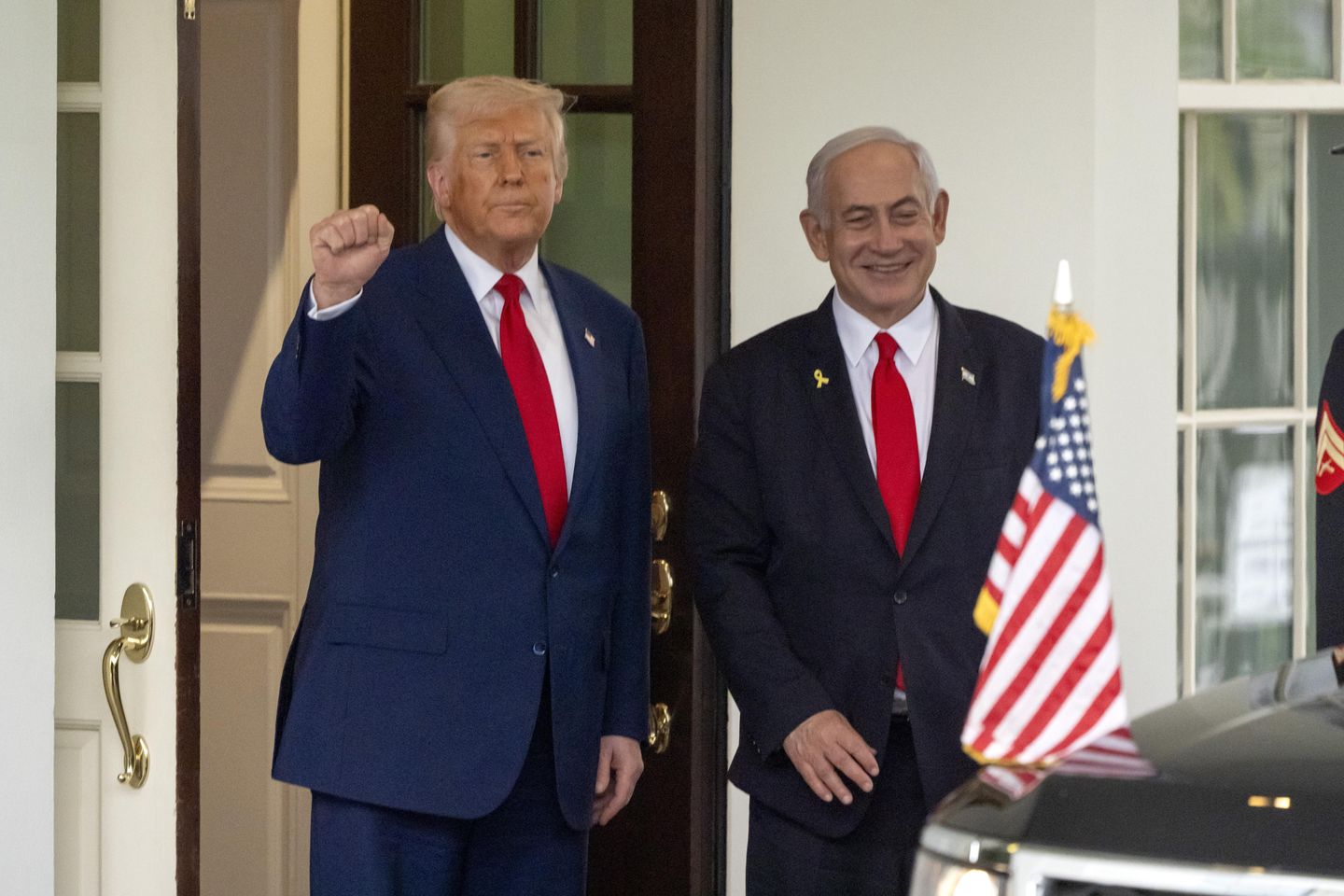
Israeli Prime Minister Benjamin Netanyahu said Sunday his nation has the opportunity to bring a “great peace” to the Middle East ahead of his meeting with President Trump with a potential Israel-Hamas ceasefire at the top of their agenda.
But a major attack on a commercial ship in the Red Sea, which may have been carried out by the Iran-backed Houthi rebels in Yemen, a key ally of Hamas, threatened to spark another round of conflict. Renewed Houthi attacks on shipping could draw U.S. forces back into Mideast fighting just two weeks after American airstrikes targeted Iranian nuclear facilities.
The two events in different corners of the Middle East underscored the difficulty of forging lasting peace. And they highlighted how any one of the stakeholders across the theater is capable of derailing that effort.
The latest Red Sea attack came as Mr. Trump urged Israel to strike a sweeping ceasefire with Hamas. Hamas is the Gaza Strip-based Palestinian terrorist group that launched an October 2023 attack on Israel, which began a domino effect of conflicts across the region.
Before leaving Israel, Mr. Netanyahu said that Hamas was already demanding “unacceptable” changes to the ceasefire framework backed by the U.S. and presented to both sides last week.
That framework would pause hostilities for 60 days. During that time, Hamas would release at least half of the remaining Israeli hostages it is holding, in five separate waves of releases.
Hamas wants assurance that talks aimed at securing a permanent ceasefire would continue even after the initial 60-day truce. And Hamas wants major changes to the delivery of humanitarian aid to Gaza.
Hamas also wants the Israel Defense Forces to withdraw to the positions it held prior to March, when a previous ceasefire collapsed.
Mr. Netanyahu acknowledged the difficulty of securing peace but also expressed optimism as he departed for Washington for his White House meeting with Mr. Trump on Monday.
“We have already transformed the Middle East beyond recognition, and we now have a chance to bring a great future to the state of Israel, the people of Israel and the entire Middle East,” he said before boarding his plane, according to Israeli media.
Mr. Netanyahu faces significant political pressure at home to bring back the remaining hostages held by Hamas. Israeli President Isaac Herzog met with Mr. Netanyahu earlier Sunday. Mr. Herzog said Mr. Netanyahu has a “supreme moral duty” to bring home the remaining hostages, and that he supports such efforts “even when they involve difficult, complex, and painful decisions.”
Hamas reportedly still holds about 50 hostages, though many of them are thought to be dead.
Mr. Trump expressed optimism last Friday about the prospects for an Israel-Hamas deal.
“We have to do something about Gaza. … We’re sending a lot of money and a lot of aid. I think it’s been very positive. It’s a good response,” Mr. Trump said, adding he is “very optimistic” that a deal could be struck in the coming days.
Fresh wave of fighting?
The Trump-Netanyahu meeting comes on the heels of major military strikes by both nations against Iran’s nuclear program. The U.S. airstrikes on Iranian nuclear sites at Fordo, Natanz and Isfahan are believed to have set back Iran’s nuclear program significantly, but the full extent of the damage remains something of a mystery.
Israel devastated Iran’s nuclear program and the upper echelons of its military ranks with nearly two weeks’ worth of intense airstrikes last month. Israel has also significantly degraded Lebanon-based Hezbollah, another Iranian proxy group, with airstrikes and covert military operations over the past 18 months.
The Houthis, another Iranian proxy, remain something of a threat. The group reportedly launched a missile from its home base in Yemen toward Israel on Sunday, but it was intercepted by the Israel Defense Forces.
There were signs Sunday that the Houthis might also be resuming their attacks on commercial ships in the Red Sea. British authorities said that a ship sailing through the Red Sea about 58 miles south of the Yemeni port city of Al Hudaydah came under attack by small arms and self-propelled grenades.
The ship was attacked by several “small vessels,” the U.K. Maritime Trade Operations Center said on social media, and security forces on board returned fire.
The maritime security firm Ambrey later said the ship also had been attacked by bomb-carrying drone boats. It said two drone boats struck the ship, while another two had been destroyed by the armed guards on board.
Later Sunday, British authorities said the attack resulted in a fire on board the ship and that the vessel’s crew was preparing to “abandon ship.”
Houthi-controlled media in Yemen acknowledged the incident but did not claim responsibility for it.
Between November 2023 and January 2025, the Houthis targeted more than 100 merchant vessels with missiles and drones, sinking two of them and killing four sailors.
The Trump administration in March launched a major offensive against the Houthis and carried out dozens of airstrikes against the rebel group’s positions in Yemen. Mr. Trump announced a ceasefire between the two sides in May, and the Houthis had not attacked any commercial or military ships in the region since then.
A resumption in Houthi attacks on commercial ships could compel the U.S. to resume its air campaign in Yemen.
Authorities did not immediately identify the vessel targeted Sunday. But The Associated Press reported that the description of the vessel matched the Liberian-flagged bulk tanker Magic Seas.
• This article is based in part on wire service reports.
Correction: An earlier version of this article misstated the office held by Israeli President Isaac Herzog.









![Florida Man With Violent History Arrested for Choking a Cop [WATCH]](https://www.right2024.com/wp-content/uploads/2025/06/Eleven-Stabbed-in-Attack-at-Salem-Homeless-Shelter-Across-From-350x250.jpg)







